 W
WCorporatism is a political ideology which advocates the organization of society by corporate groups, such as agricultural, labour, military, scientific, or guild associations, on the basis of their common interests. The term is derived from the Latin corpus, or "human body". The hypothesis that society will reach a peak of harmonious functioning when each of its divisions efficiently performs its designated function, such as a body's organs individually contributing its general health and functionality, lies at the center of corporatist theory.
 W
WThe Bavarian Senate was the corporative upper chamber of Bavaria's parliamentary system from 1946 to 1999, when it was abolished by a popular vote (referendum) changing the Constitution of Bavaria.
 W
WThe Worshipful Company of Butchers is one of the Livery Companies of the City of London, England. Records indicate that an organisation of Butchers existed as early as 975; the Butchers' Guild, the direct predecessor of the present Company, was granted the right to regulate the trade in 1331. The Butchers' Guild was incorporated by Royal Charter centuries later, in 1605. The Butchers' still, unlike other Livery Companies, continues to exist as a trade association for members of the industry, instead of evolving into an institution primarily dedicated to charity. However, the Company does contribute, like all Livery Companies, to various charities.
 W
WChamber of Fasces and Corporations was the lower house of the legislature of the Kingdom of Italy from March 23, 1939 to August 2, 1943, during the height of the regime of Benito Mussolini's National Fascist Party.
 W
WJaime Chicharro Sánchez-Guió (1889–1934) was a Spanish Conservative and Carlist politician. He is known mostly as the moving spirit behind turning a fishing bay in Burriana into a modern port, facilitating export of oranges grown in the area. As a politician he is recognized as representative of large proprietors within the Carlist movement.
 W
WThe Worshipful Company of Cordwainers is one of the Livery Companies of the City of London. Cordwainers were workers in fine leather; the Company gets its name from "cordwain" (cordovan), the white leather produced from goatskin in Cordova, Spain. All fine leather makers, including Girdlers and Glovers, were originally classified as cordwainers; however, the term eventually came to refer only to fine leather footwear, including boots.
 W
WThe Worshipful Company of Curriers is one of the ancient livery companies of London, associated with the leather trade.
 W
WThe Worshipful Company of Cutlers is one of the ancient Livery Companies of the City of London. It ranks 18th in the order of precedence of the Companies.
 W
WThe Democratic Nationalist Party or Nationalist Democratic Party was a political party in Romania, established by historian Nicolae Iorga and jurist A. C. Cuza. Its support base was in the lower reaches of the Romanian middle class, and, especially through Cuza's ideology, it reflected the xenophobia, economic antisemitism, and producerism of that particular environment. The PND was a weak challenge to the mainstream political forces, either conservative or liberal, failing in its bid to become Romania's third-strongest party. By 1916, it was effectively split between Iorga's moderates and Cuza's radicals, suspending its activity for the remainder of World War I.
 W
WLike many other Western nations, Germany suffered the economic effects of the Great Depression with unemployment soaring around the Wall Street Crash of 1929. When Adolf Hitler became Chancellor of Germany in 1933, he introduced policies aimed at improving the economy. The changes included privatization of state industries, autarky and tariffs on imports. Weekly earnings increased by 19% in real terms from 1933 to 1939, but this was largely due to employees working longer hours, while the hourly wage rates remained close to the lowest levels reached during the Great Depression. In addition, reduced foreign trade meant rationing in consumer goods like poultry, fruit, and clothing for many Germans.
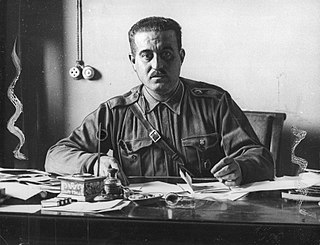 W
WManuel Fal Conde, 1st Duke of Quintillo (1894–1975) was a Spanish Catholic activist and a Carlist politician. He is recognized as a leading figure in the history of Carlism, serving as its political leader for over 20 years (1934–1955) and heading the movement during one of its most turbulent periods. Initially he led the belligerent faction pressing anti-Republican insurgency; during the Spanish Civil War he joined the Nationalists; later on he championed the anti-Francoist strategy.
 W
WFascism is a form of far-right, authoritarian ultranationalism characterized by dictatorial power, forcible suppression of opposition and strong regimentation of society and of the economy which came to prominence in early 20th-century Europe. The first fascist movements emerged in Italy during World War I, before spreading to other European countries. Opposed to liberalism, democracy, Marxism, and anarchism, fascism is placed on the far right within the traditional left–right spectrum.
 W
WThe Worshipful Company of Fishmongers is one of the 110 Livery Companies of the City of London, being an incorporated guild of sellers of fish and seafood in the City. The Company ranks fourth in the order of precedence of City Livery Companies, thereby making it one of the Great Twelve City Livery Companies.
 W
WRafael Gambra Ciudad (1920-2004) was a Spanish philosopher, a secondary education official, a Carlist politician and a soldier. In philosophy he is considered key representative of late Traditionalism; his works fall also into theory of state and politics. He is best known as author of books focusing on secularisation of Western European culture in the consumer society era. As a politician he is acknowledged as a theorist rather than as an active protagonist, though after 2001 he briefly headed one of the Carlist branches.
 W
WThe Worshipful Company of Goldsmiths is one of the Great Twelve Livery Companies of the City of London. The company's headquarters are at Goldsmiths' Hall in the City of London.
 W
WThe Guilds of Brussels, grouped in the Nine Nations of Brussels, were associations of craft guilds that dominated the economic life of the city of Brussels in the late medieval and early modern periods. From 1421 onwards, they were represented in the city government alongside the patrician lineages of the Seven Noble Houses of Brussels, later also in the States of Brabant as members of the Third Estate. As of 1421, they were also able to become members of the Drapery Court of Brussels. Together with the Seven Noble Houses, they formed the bourgeoisie of the city. Some of their guildhouses can still be seen as part of the UNESCO World Heritage Site of the Grand Place in Brussels.
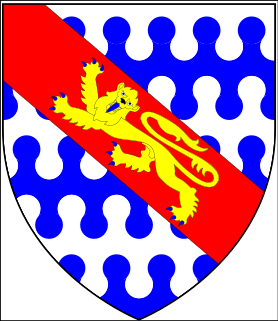 W
WThe Worshipful Company of Haberdashers, one of the Great Twelve City Livery Companies, is an ancient merchant guild of London, England associated with the silk and velvet trades.
 W
WThe House of the Twenty-Four was a corporation in the pre-Constitutional Kingdom of Portugal that functioned as a deliberative assembly of craftsmen, with significant political power in local government.
 W
WThe Worshipful Company of Ironmongers is one of the livery companies of the City of London, incorporated under a Royal Charter in 1463.
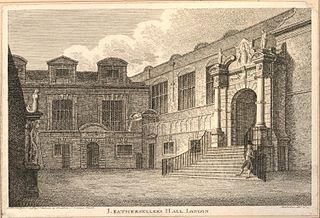 W
WThe Worshipful Company of Leathersellers is one of the livery companies of the City of London. The organisation originates from the latter part of the fourteenth century and received its Royal Charter in 1444, and thereby is the senior leather industry-related City Livery Company.
 W
WThere are 110 livery companies, comprising London's ancient and modern trade associations and guilds, almost all of which are styled the 'Worshipful Company of...' their respective craft, trade or profession. These livery companies play a significant part in the life of the City of London, not least by providing charitable-giving and networking opportunities. Liverymen retain voting rights for the senior civic offices, such as the Lord Mayor, Sheriffs and Corporation, its ancient municipal authority with extensive local government powers.
 W
WSalvador Minguijón Adrián (1874–1959) was a Spanish law scholar, political theorist and politician. As a lawyer he is known mostly as a longtime academic in the University of Zaragoza and briefly member of the Spanish constitutional court. As a theorist he is considered one of key representatives of Traditionalism. As a politician he is recognized as associated with Carlism, Christian Democracy, Primoderiverismo, Social Catholicism and early Francoism.
 W
WThe National Agrarian Party was a right-wing agrarian party active in Romania during the early 1930s. Established and led by poet Octavian Goga, it was originally a schism from the more moderate People's Party, espousing national conservatism, monarchism, agrarianism, antisemitism, and Germanophilia; Goga was also positively impressed by fascism, but there is disagreement in the scholarly community as to whether the PNA was itself fascist. Its antisemitic rhetoric was also contrasted by the PNA's acceptance of some Jewish members, including Tudor Vianu and Henric Streitman. The group was generally suspicious of Romania's other ethnic minorities, but in practice accepted members and external collaborators of many ethnic backgrounds, including the Romani Gheorghe A. Lăzăreanu-Lăzurică.
 W
WThe National Union was the sole legal party of the Estado Novo regime in Portugal, founded in July 1930 and dominated by António de Oliveira Salazar during most of its existence.
 W
WJuan Olazábal Ramery (1860–1937) was a Spanish Traditionalist politician, first as a Carlist, then as an Integrist, and eventually back in the Carlist ranks. In 1899-1901 he served in the Cortes, and in 1911-1914 he was a member of the Gipuzkoan diputación provincial. Between 1897 and 1936 he managed and edited the San Sebastián daily La Constancia. He is best known as the nationwide leader of Integrism, the grouping he led between 1907 and 1931.
 W
WMarcelino Oreja Elósegui (1894–1934) was a Spanish entrepreneur, Catholic activist and Carlist politician.
 W
WThe Peasant Corporation was a Paris-based organization created by the Vichy France government during World War II (1939–45) to support a corporatist structure of agricultural syndicates. The Ministry of Agriculture was unenthusiastic and undermined the Corporation, which was launched with a provisional structure in 1941 that was not finalized until 1943. By then the small farmers and farm workers had become disillusioned since the Corporation had maintained the privileged position of landowners and had not protected them from demands by the increasingly unpopular German occupiers. The Corporation, which was never effective, was dissolved after the liberation of France in September 1944.
 W
WJuan Víctor Pradera Larumbe (1872–1936) was a Spanish political theorist and a Carlist politician.
 W
WThe Romanian Front was a moderate fascist party created in Romania in 1935. Led by former Prime Minister Alexandru Vaida-Voevod, it originated as a right-wing splinter group from the mainstream National Peasants' Party (PNȚ). While in power, Vaida had an ambiguous approach to the Iron Guard, and constructed his own radical ideology; the FR had a generally xenophobic program of positive discrimination, being implicitly antisemitic. It was subsumed to the policies of King Carol II, maneuvering between the mainstream National Liberals, the PNȚ's left-wing, and the more radically fascist Guardists. Vaida tried to compete with the former two and appease the latter, assuming fascist trappings such as the black-shirted uniform. Like the Guard, he supported aligning Romania with the Axis powers, though he also hoped to obtain their guarantees for Greater Romania's borders. The FR's lower echelons included Viorel Tilea and other opponents of Vaida's approach, who believed in Romania's attachments to the League of Nations and the Little Entente.
 W
WThe Worshipful Company of Shipwrights is one of the ancient livery companies of the City of London. Although the Shipwrights' Company is no longer a shipbuilding trade association representing solely London-based industry, through its membership it retains strong links with global trade, and maritime and shipping professions.
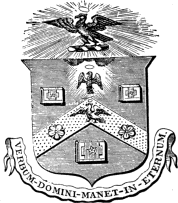 W
WThe Worshipful Company of Stationers and Newspaper Makers, usually known as the Stationers' Company, is one of the livery companies of the City of London. The Stationers' Company was formed in 1403; it received a royal charter in 1557. It held a monopoly over the publishing industry and was officially responsible for setting and enforcing regulations until the enactment of the Statute of Anne, also known as the Copyright Act of 1710. Once the company received its charter, “the company’s role was to regulate and discipline the industry, define proper conduct and maintain its own corporate privileges.”
 W
WThe Worshipful Company of Tallow Chandlers is one of the ancient livery companies of the City of London. The organisation, which engaged not only in tallow candle making but also in the trade of oils, first received a Royal Charter in 1462.
 W
WFrancisco Elías de Tejada y Spínola Gómez (1917-1978) was a Spanish scholar and a Carlist politician. He is considered one of top intellectuals of the Francoist era, though not necessarily of Francoism. As theorist of law he represented the school known as iusnaturalismo, as historian of political ideas he focused mostly on Hispanidad, and as theorist of politics he pursued a Traditionalist approach. As a Carlist he remained an ideologue rather than a political protagonist.
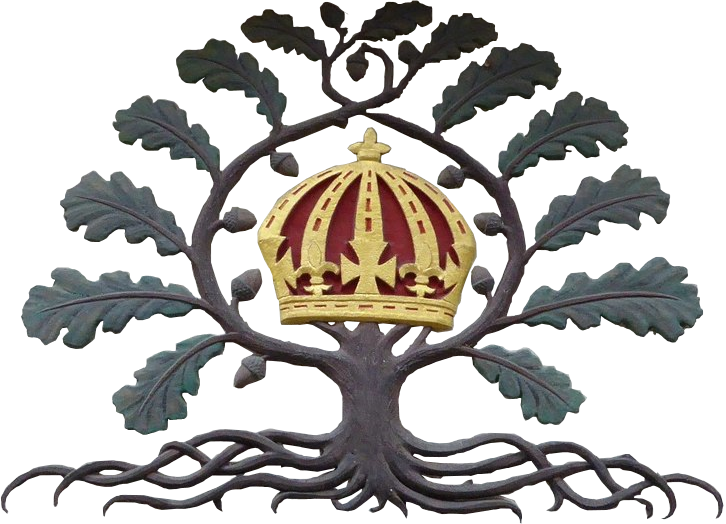 W
WA Tory is a person who holds a political philosophy known as Toryism, based on a British version of traditionalism and conservatism, which upholds the supremacy of social order as it has evolved in the English culture throughout history. The Tory ethos has been summed up with the phrase "God, Queen, and Country". Tories are generally monarchists, were historically of a high church Anglican religious heritage, and opposed to the liberalism of the Whig faction.
 W
WTory corporatism is a corporatist political culture that is distinct from fascist corporatism in that rather than having a dictatorship impose order through force, the Tory corporatist culture is organic, already settled and ongoing. The Tory corporatist culture relies on existing shared values of its members and therefore does not feature a large police force. The theoretical source of legitimacy of a Tory corporatist culture is tradition and hierarchy.
 W
WThe Ukrainian National Party was a right-wing agrarian group, representing the Ukrainian minority in Romania. Its founder and president was the scholar Volodymyr Zalozetsky-Sas, who supported the "classocratic" Hetmanism of Pavlo Skoropadskyi and Vyacheslav Lypynsky; the PNU leadership also included Vasyl Dutchak, Teodor Ivanytsky, and Lev Kohut, who stood for more moderate currents of Ukrainian nationalism. Always strongest among the Ukrainians of Bukovina, the party was united in its opposition to Romanianization, but overall accepted Romanian rule. Its more radical faction, supportive of "Greater Ukraine", gravitated toward the Organization of Ukrainian Nationalists after 1933; the mainstream did not.
 W
WThe Worshipful Company of Pewterers is one of the 110 Livery Companies of the City of London. It ranks 16th in the order of precedence of City Livery Companies and has existed since at least 1348. Like all the other City Livery Companies, the Worshipful Company of Pewterers has four main pillars of activity: Charitable endeavour, assistance to education, support for its trade and profession, and being a convivial and caring social community.